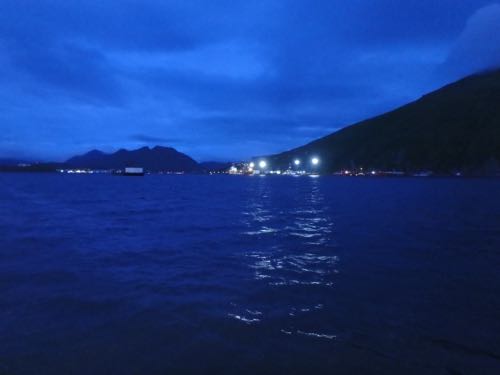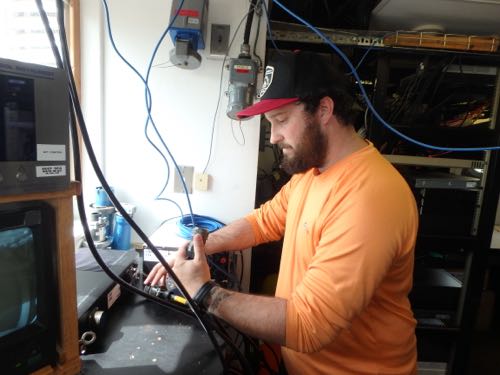In the sweltering heat of an August afternoon in Norfolk, VA, it's hard to fathom what those sub-Arctic temperatures were like a few weeks ago. Although the sensation of cooler air has left me, the experiences I had this summer as a PolarTREC teacher on the research cruise "Jellyfish in the Bering Sea" have made lasting impressions on me. Some of the souvenirs from this trip that I will be sharing with my students are the following.

Science is evidence-based. There is nothing to "believe" in science. You look at the evidence and either understand it or do not. During the solar eclipse, NASA, among other other sources, provided evidence-based information regarding the solar eclipse as well as safety procedures for viewing it. People who understood the risks of not following the rules for safely viewing the eclipse donned the proper glasses and will have lasting memories. Those who blatantly dismiss science, that is, those who willingly glare into the intense rays during the solar eclipse, despite evidence not to, risk becoming blind, both literally and figuratively to the progress science has afforded us as a people, nation and planet.
Science has a role for everyone. As a teacher, I want my students to understand that they have roles as students, well-informed citizens and inhabitants of Earth to participate in science. As part of the "Jellyfish in the Bering Sea" expedition, I had the role of communicating what it was like being part of a research team on a ship. Others on the team had different roles, some of which I portrayed in the "Polar Profiles", and our Principal Investigators, Dr. Mary Beth Decker and Dr. Hongsheng Bi, made sure all members of the team were valued active participants. Their ability to facilitate inclusiveness among diverse individuals on the research team is admirable; it is something for which to strive and something on which I reflected during my visit to Charlottesville, VA this past weekend. We work better when we work together.

Wise words left in note on memorial in Charlottesville, VA
I want to express my profound gratitude to Dr. Mary Beth Decker and Dr. Hongsheng Bi, the research team, the Oceanus crew, the PolarTREC people: especially Janet Warburton, Judy Fahnestock, Robbie Score, Joed Polly, and my parents, children, colleagues, students and friends who made this experience possible and unforgettable.
Polar Profile: Jonathan Witmer, Acoustics Technician

When John was getting his degree in Marine Biology, he happened to hear about a professor who was doing underwater sonar work. It made him ask questions. He began working with this professor and Jonathan became an acoustics technician. This means he runs the surveying part of remote sensing such as the CTDA research tool that is submerged in the water to measure conductivity (salinity), temperature, and depth., echo sounders and the ARIS. For students who interested in a career like this, Jonathan suggests asking the right questions, such as "How do I get this data?" and talking to people in the field.
- < prev
- 15 of 15


Comments